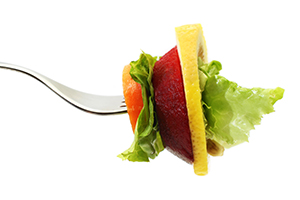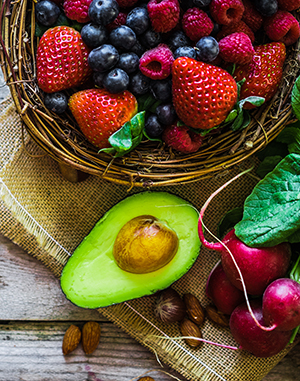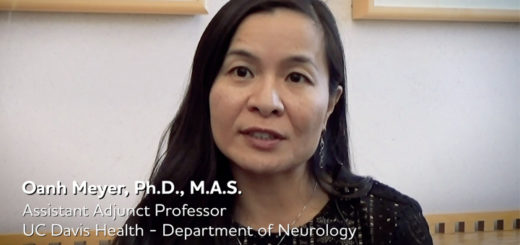New Year’s resolution: a brain healthy diet
January is the prime time of the year for fresh starts and new goals. A 2019 article in ALZ magazine, the Alzheimer’s Association magazine about the fight to end Alzheimer’s, talks about the three best diets for your brain. We asked one of our staff to offer some tips on which diet to choose and how to get started.
Dori Sproul is a recently retired Family Care Specialist who worked in the Bay Area. Prior to joining the Alzheimer’s Association, she taught health and wellness classes for seniors. Dori was one of the staff members who presented our workshops on healthy living for your brain and body. We asked Dori for her tips on which diet to pick and how to start.

What are the diets?
While more research is needed, there is growing evidence that three diets may positively impact our cognition: the DASH diet, the Mediterranean diet and the MIND diet. A description of each diet can be found here.
“The DASH diet is more restrictive,” said Dori. “The Mediterranean diet is a lifestyle change and the MIND diet is a combination of the first two diets.”
What about weight loss?
“None of these diets are specifically weight loss diets,” said Dori. “These are heart and brain health diets. You can be eating all the right things but if you eat too much of them you won’t lose weight. However, portion sizes of these diets can be modified to help with weight loss.”

How do you start?
“Starting a new diet or exercise program can feel overwhelming. Because of this, many people choose to do nothing,” said Dori. “I always tell people whether its diet or exercise, start small. Pick one thing you can do, like increasing your fruits and vegetables or decreasing the amount of red meat you eat. Once you get going you can build from there.”
A good way to start is by setting a short-term goal (one month), and then a longer-term goal (six months). Your short-term goal should be something easy to accomplish, like eating green leafy vegetables several times a week. Your longer-term goal can be something more challenging, like removing deep-fried food from your diet.
What to eat and avoid?
As a general rule of thumb, you should do your best eat and avoid the foods listed below, no matter which diet you choose.
Eat these:
- Fruits, like berries
- Vegetables, including green leafy
- Nuts, beans and whole grains
- Lean meats, fish and poultry
- Vegetable oils
- Proper portion sizes
- Adequate fluids
Avoid these:
- Saturated fats (these are mainly found in animal sources, including meat and dairy products, like fatty beef, lamb, pork, lard, butter, cheese and whole milk products)
- Trans fats (these are mainly found in fried and baked goods like doughnuts, cakes, pizza and crackers)
- Processed foods
- Solid fat, sugar and salt
- Deep-fried foods
- Unhealthy fast foods
For supplements and vitamins, you should consult a reputable source and work with your doctor.

What can I do today?
- Begin right now
- Start small and build
- Do what you enjoy and stick with it
- Make healthy choices
- Make a plan
- Get support from others
- Have fun
Which diet should I pick?
“It’s all about what is best for your needs and what you will stick to,” says Dori. “If you need something restrictive then try the MIND diet. If a lifestyle change is easier for you, the Mediterranean diet may be a better fit.
“You should also factor in your health needs. If you have high blood pressure or diabetes you will want to look at the DASH diet, which was developed to help treat or prevent these conditions. However, if that is too restrictive, consider the MIND diet. Play around with them. In the end, it’s all about what will you follow.”
Get more tips by viewing our Healthy Living for Your Brain and Body workshop in person or online. What is good for your heart is good for brain, visit alz.org/healthyhabits to learn more about other things you can do that can make an impact on your health.
Learn more:

















